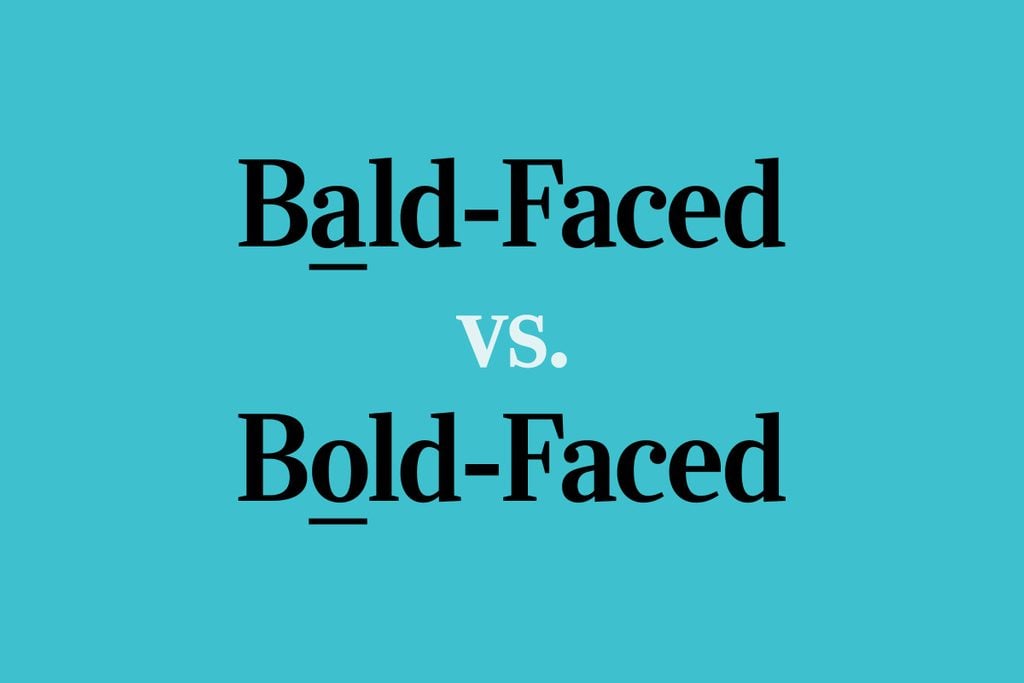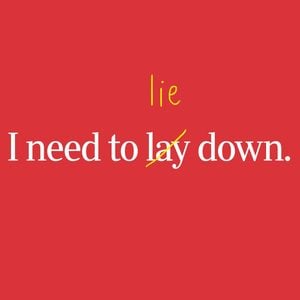“Bald-Faced” or “Bold-Faced”: Which Is Correct?
Updated: Oct. 26, 2022

These expressions are both used to describe a blatant lie—but are they interchangeable, or is only one of them correct?
One of the most common ways to call out a false statement is to say it’s a “bold-faced lie,” or perhaps a “bald-faced lie.” In fact, nowadays, you barely ever hear the phrases “bold-faced” or “bald-faced” in any other context besides responding to a lie. But if you’ve heard both of these expressions—perhaps now more than ever in a time when lies seem to be all too common from government leaders—you may have wondered…which is it? Is it a “bald-faced lie,” as in a totally exposed, uncovered falsehood? Or is it a “bold-faced lie,” as in a big, blatant lie in bold print? Only one of them can be right…right?
You probably think that only one of these expressions is the “correct” one, and that the other is just one of these words and phrases you’re saying wrong. But in this case, in a surprising linguistic twist, both “bold-faced lie” and “bald-faced lie” are generally considered valid expressions!
What does “bald-faced lie” mean?
Interestingly, this phrase was born out of a slightly different one: “bare-faced lie.” And, yes, both expressions refer, figuratively, to hairlessness. First recorded around the late 1500s, “bare-faced” (or “barefaced”) both referred literally to a hairless man and figuratively to a brash, forward quality or action. (What an interesting societal comment on clean-shaven men at the time!) However, “bare-faced” wouldn’t be recorded as specifically describing a lie until the 1800s.
As “bald” became the prevailing word for hairlessness, the expression evolved accordingly. “Bald-faced lie” became the prevailing way to describe a brash un-truth in the mid-20th century, according to Merriam-Webster. Though you’ll still hear “bare-faced lie” today, it’s not nearly as popular as “bald-faced lie” or “bold-faced lie.” (It’s also more popular in Britain than America—this is why British English and American English are so different.)
What does “bold-faced lie” mean?
“Bold-faced” was also around for quite a while before it began primarily describing lies. It was likewise first recorded in the late 16th century, and it meant, well, bold (usually with a negative connotation). But when it came to describing lies, it didn’t rise to popularity until the late 20th century, after “bald-faced lie” had started to gain prevalence. And Merriam-Webster believes that the use of “bold-faced lie” surged because of the sudden popularity of “bold-faced” as a type of print, like for a newspaper headline—and people conflated that phrase with the use of “bald-faced lie.” For that reason, Merriam-Webster considers “bald-faced lie” the slightly more “legitimate” expression: It’s “decidedly the preferred term in published, edited text.”
But hey, “bold-faced” was already an expression before this typographical mix-up—and it meant exactly what people mean when they say “a bold-faced lie.” So don’t sweat it—”bold-faced lie” and “bald-faced lie” are both valid. No matter which of these you use, people will know what you mean.
Sources:
- Merriam-Webster: “Is That Lie ‘Bald-faced’ or ‘Bold-faced’?”
- Dictionary.com: “Barefaced”
- Dictionary.com: “Bald-faced”
- Dictionary.com: “Bold-faced”



